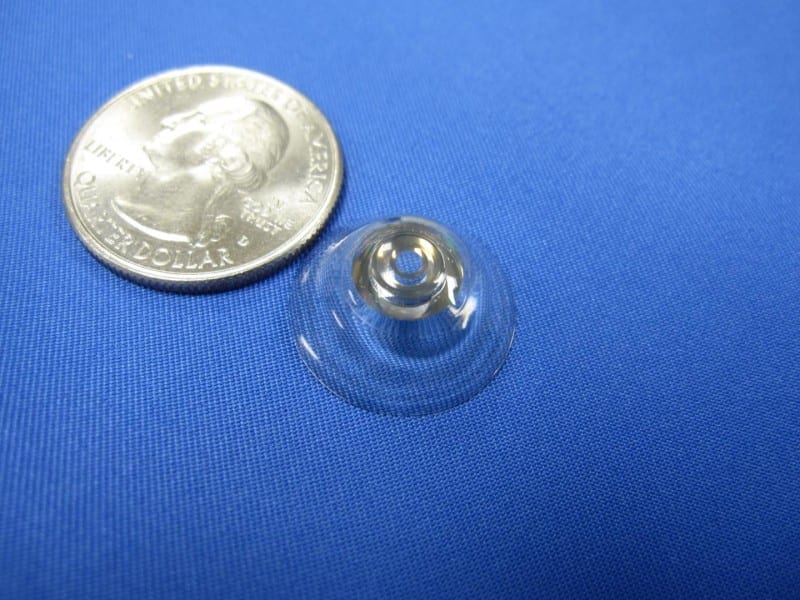
Cambridge scientists raise prospect of new generation of treatments after finding technique to limit development of biggest cause of dementia
Scientists have found a method which could potentially stop the growth of Alzheimer’s disease in its tracks, raising the prospect of a wave of new treatments for the condition.
A team at Cambridge University, working with partners in Sweden and Estonia, has identified a molecule which can block the progress of Alzheimer’s at a crucial stage in its development.
Not only is it the first time that experts have identified a means of breaking the cycle leading to the development of Alzheimer’s but they believe the technique could be used to identify other molecules as future treatments to curb the growth of the condition.
Charities hailed it as an “exciting” discovery.
More than 520,000 people in the UK are estimated to be living with Alzheimer’s, by far the most common cause of dementia.
Dementia-related conditions are already the biggest cause of death among women in Britain and only narrowly outranked by heart disease and cancer for men.
Alzheimer’s develops when proteins in the brain malfunction and then stick together into fibres. They in turn eventually form clusters called oligomers which are toxic to nerve cells.
The second stage of that process is believed to set off a chain reaction which multiplies the number of clusters, hastening the development of the most devastating effects.
Experts at the Centre for Misfolding Diseases in Cambridge’s Chemistry Department have identified that natural proteins called Brichos, can stick to the fibres preventing them merging with others and forming the damaging clusters, therefore limiting the effects.
They believe the method used could help them identify other so-called “chaperone molecules” which could attach themselves in a similar way raising the prospect of a new generation of treatments.
Read more: Alzheimer’s breakthrough: scientists home in on molecule which halts development of disease
The Latest on: Chaperone molecules
[google_news title=”” keyword=”Chaperone molecules” num_posts=”10″ blurb_length=”0″ show_thumb=”left”]
via Google News
The Latest on: Chaperone molecules
- The Drowsy Chaperoneon April 24, 2024 at 9:15 pm
His favorite cast album from the Jazz Age comes to fizzy life complete with a self-admiring showgirl, her gin-soaked chaperone, a saucy Latin lover, a bumbling best man, a clueless soon-to-be ...
- Buried in the Cat's Paw Nebula lies one of the largest space molecules ever seenon April 23, 2024 at 5:00 pm
Discovering molecule 2-methoxyethanol was remarkable. It contains 13 atoms, which may not sound like a lot, but only six molecules have been discovered in space with an atom count beyond this.
- Individual polyatomic molecules are trapped in optical-tweezer arrayson April 23, 2024 at 5:00 pm
Three’s company: researchers at Harvard University have trapped individual triatomic molecules. (Courtesy: iStock/Emilija Randjelovic) Individual polyatomic molecules have been trapped in arrays of ...
- Review: Lyric Stage Company's THE DROWSY CHAPERONE is an Irresistible Delighton April 21, 2024 at 5:00 pm
“The Drowsy Chaperone” is anything but. First produced in 1998 at the Rivoli in Toronto, followed by a 2005 run in Los Angeles, “The Drowsy Chaperone” opened its Tony Award-winning ...
- Boston's Lyric Stage offers a show within a show in "The Drowsy Chaperone"on April 15, 2024 at 3:11 pm
In The Lyric Stage Company's new production of "The Drowsy Chaperone," the lead character takes the audience through the cast album of his favorite musical of the same name. Actor Paul Melendy ...
- Mechanochemistry strips cargo molecules from a loaded rotaxaneon April 10, 2024 at 5:00 pm
Researchers have now re-created this joyful experience at the nanoscale, offering a method that might be used to deliver drugs or release molecules that repair damaged materials (Nature 2024 ...
- A comic feast in Lyric Stage’s ‘Drowsy Chaperone’on April 8, 2024 at 9:02 am
“The Drowsy Chaperone” doesn’t just invite hammy excess. This utterly bonkers musical demands it. The Lyric Stage Company of Boston’s 16-member cast, led by director-choreographer Larry ...
- The science of smell is fragrant with submoleculeson April 5, 2024 at 2:33 am
We are actually detecting odor molecules that enter our nose and interact with cells that send signals to be processed by our brain. While certain smells feel like they’re unchanging ...
- RNA that doesn't ageon April 4, 2024 at 5:00 pm
Certain RNA molecules in the nerve cells in the brain last a life time without being renewed. Neuroscientists have now demonstrated that this. RNAs are generally short-lived molecules that are ...
- Researchers reveal assembly of critical molecular machine that removes non-coding information from geneson April 4, 2024 at 7:03 am
The spliceosome surveys messenger RNA molecules to identify the beginning ... acts as a molecular "chaperone," helping the protein components of the complex come together and assemble correctly.
via Bing News










